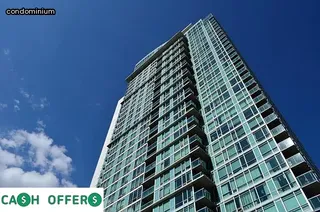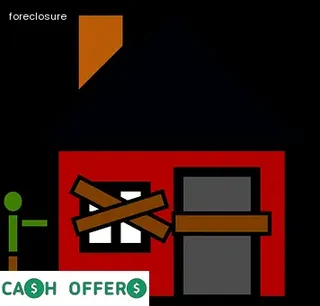An HOA, or Homeowners' Association, is a legal organization made up of individuals who live in the same community. This type of organization is typically responsible for enforcing certain rules and regulations that protect the quality of life within the community.
They also collect fees from homeowners to manage shared areas, such as common grounds, parks, and amenities. In some cases, they can even place a lien on a home if the homeowner fails to pay their dues.
In Massachusetts, an HOA can foreclose on a home with an HOA Super Lien. This guide will walk you through understanding what exactly an HOA is and how they can use an HOA Super Lien to foreclose on your property in Massachusetts.

Owning a home in Massachusetts can be a complex process, especially when dealing with Homeowner's Associations (HOAs). Many homeowners have questions about how HOAs affect their property ownership and what they need to know to protect themselves.
One of the most common questions is whether an HOA can foreclose on a homeowner’s property. The answer depends on the laws governing HOAs in Massachusetts, which allow for HOA super liens that may result in foreclosure.
Depending on the situation, an HOA may be able to place a lien on a homeowner’s property for unpaid assessments or other obligations, including fines for violating community rules. In some cases, these liens can result in foreclosure proceedings if the homeowner does not pay them off or make arrangement with the HOA to settle the debt.
It is important for homeowners to understand their rights and obligations under Massachusetts law when it comes to HOAs so they can take steps to protect themselves from potential foreclosure proceedings.
In Massachusetts, foreclosures for unpaid Homeowner Association (HOA) dues are possible under certain circumstances. HOAs have the power to assess, collect and enforce liens against a homeowner’s property in order to acquire payment for delinquent assessments.
HOA super liens provide a powerful incentive for homeowners to pay their dues on time, as they can result in foreclosure proceedings being initiated if the debt goes unpaid. Reasons why an HOA may foreclose include failure to pay assessments, late payments on assessments or other financial obligations such as fines or attorney’s fees.
Another reason is when a homeowner has committed a breach of contract with the HOA that results in fines imposed by the association. In addition, if a homeowner fails to comply with the covenants or rules set out by the HOA or fails to keep up with maintenance and repairs, they could face foreclosure proceedings initiated by their HOA.
Foreclosure is always a last resort and can be avoided if homeowners remain proactive and current on their assessments.

Exploring the process of an HOA foreclosure can be a daunting task, especially if you’re not sure what to expect. In Massachusetts, HOA foreclosures are rare but can still happen in some circumstances.
An HOA, or homeowners' association, has the power to place a lien against a property for unpaid dues or assessments. This is known as a super lien and it gives the association the right to collect any money owed before other lenders.
If an owner fails to pay for more than six months, the association may pursue foreclosure proceedings. To begin this process, the HOA will send written notice of default and demand for payment to both the property owner and all interested parties such as banks or mortgage lenders.
If payment isn't made within 30 days of this notice being sent, then the homeowner's rights are terminated and any existing mortgages become subordinate liens to that of the HOA super lien. The association may then proceed with filing a complaint in court which will result in a public auction where ownership of the property is sold off to pay off its delinquent debt.
While this situation can be difficult to navigate on your own, understanding how it works can help you prepare for potential future issues related to your home and its association fees.
Foreclosure by a Homeowners Association (HOA) can be a difficult process to understand and navigate. In Massachusetts, the HOA's super lien – a legal tool that allows them to collect overdue payments from delinquent homeowners – grants them certain rights to foreclose on a home in order to recover any unpaid dues.
The exact timeline for an HOA foreclosure varies depending on several factors, such as the amount of debt owed, the state’s foreclosure laws, and whether or not the homeowner has filed for bankruptcy. Generally speaking, however, an HOA can begin foreclosure proceedings after 30 days of non-payment.
During this time, they may send out notices to the homeowner informing them of their financial obligations and their right to dispute those claims in court. If no payment is made after this period has expired, then the association may initiate the foreclosure process.
Although this timeline is fairly standard, it is important for homeowners to be aware of their rights in case their particular situation differs from the norm.

When faced with the prospect of foreclosure on your home due to nonpayment of HOA dues, it is important to understand the steps you can take to protect yourself. One of the best ways to prevent HOA foreclosure is to stay informed about all regulations and laws concerning HOA super liens in your state.
In Massachusetts, an HOA has the right to place a lien on property if dues remain unpaid for 90 days or more. This lien becomes a super lien that takes priority over any other mortgage or loan secured against the property when not paid within one year.
The best way to avoid this situation is by paying all HOA fees on time and keeping up with any changes in regulations or enforcement practices. You should also consider putting together an emergency fund in case you find yourself facing financial difficulties in the future, as this can help you make payments without running into trouble with your HOA.
Finally, it is also wise to carefully read all contracts before signing them, as some HOAs may require payment of a lump sum at closing that could affect your ability to pay regular dues in the future. Taking these steps can help you avoid foreclosure from your homeowners' association and ensure that your home remains secure.
Failing to pay your HOA dues can have serious consequences and can even lead to the foreclosure of your home. If you do not pay your HOA fees, an HOA super lien may be placed on your property, which gives the HOA the right to foreclose on the property if payment is not made in a timely manner.
This means that if you fall behind on payments, they can take possession of your home and sell it in order to recoup their losses. In addition, this will also damage your credit score and could prevent you from getting a loan or other financial assistance in the future.
Furthermore, unpaid dues will accrue interest which could lead to additional fees and charges. Lastly, being in arrears for an extended period of time may result in legal action by the HOA or even eviction proceedings against you.
All these potential consequences make it important to stay current on all HOAs fees and payments so as not to risk losing your home and damaging your credit.

If you are a homeowner in Massachusetts, it can be daunting to face the possibility of an HOA foreclosing on your home. However, there are steps that can be taken to prevent this from happening.
To begin with, familiarize yourself with state laws and regulations that may apply to HOAs in your area. Understand the terms of any agreements or contracts you have signed with your HOA as these will likely dictate their legal rights to pursue a foreclosure on your property.
Be aware that most HOAs have a Super Lien that allows them to place a lien on the property if homeowners fail to comply with certain requirements or pay certain fees, so it is important for homeowners to stay current on any obligations they may have. It is also wise for homeowners facing potential foreclosure proceedings to seek legal advice from an experienced attorney.
An attorney can help determine what steps need to be taken in order to protect their rights and potentially prevent an HOA from foreclosing on their home. Furthermore, if you find yourself in a dispute with your HOA, consider researching alternative dispute resolution options such as mediation which could help resolve the issue without resorting to foreclosure proceedings.
Taking proactive steps and understanding all of the legal implications behind an HOA foreclosure can make all the difference when it comes to preventing one in Massachusetts.
For homeowners in Massachusetts, there are alternative solutions available to avoid home foreclosure due to an HOA super lien. Working out a payment plan with the association, seeking out legal assistance, or filing for bankruptcy can all be viable options, depending on the HOA's policies and the homeowner's financial situation.
In some cases, it might be possible to negotiate a reduction of fees or fines owed to the association. Additionally, if homeowners can prove that they have been paying dues on time but have not received proper notice from their HOA, they may be eligible for relief from foreclosure proceedings.
Furthermore, when faced with foreclosure by an HOA super lien, homeowners should look into the possibility of appealing their case through mediation or arbitration. Lastly, homeowners should always consider speaking with a qualified attorney who is knowledgeable in state and local laws surrounding HOAs and home foreclosures.

Massachusetts is a state with many laws governing Homeowner's Associations (HOAs) and the foreclosures they may impose on homeowners who fail to abide by their regulations. It is important for homeowners to understand their rights and obligations when it comes to HOA foreclosures, as they can have significant consequences that affect their financial stability.
Massachusetts law requires HOAs to follow certain procedures when initiating foreclosure proceedings against homeowners in default on payment of fees or assessments. This includes providing written notice of the amount owed, an itemized list of charges, a description of how the homeowner can dispute the claim, and other important details.
Additionally, HOAs must provide a reasonable opportunity for the homeowner to appeal any decision regarding foreclosure before taking action. Furthermore, Massachusetts laws stipulate that even after foreclosure has been approved by an HOA board, lenders must still be given sufficient time to pay off any outstanding debts prior to the home being sold at auction.
Knowing these regulations and understanding what options are available can help homeowners protect themselves from potential financial hardship caused by an HOA super lien foreclosure in Massachusetts.
Yes, Massachusetts does have laws related to Homeowners' Associations (HOAs). These laws are designed to protect homeowners living in HOA-governed communities.
Generally speaking, HOAs can foreclose on a home if the homeowner fails to pay their dues or assessments. This is done through a process known as a super lien, which allows an HOA to collect delinquent payments from the sale of the home.
In Massachusetts, HOAs must follow certain steps before they can foreclose on a home and obtain a super lien. These steps include filing notice with the Registry of Deeds, holding a hearing with the homeowner, and obtaining a court order for foreclosure.
Knowing these steps can help homeowners understand their rights and better prepare for any potential action taken by their HOA.

Massachusetts is one of the few states in the United States that is considered a "super lien" state. This means that if you live in Massachusetts and fail to pay your homeowner association (HOA) fees, the HOA can foreclose on your home.
This is different from other states where an HOA can only place a lien on your property, but not actually take possession of it. In Massachusetts, an HOA has the right to foreclose on a property if its owner fails to pay their dues.
The process of foreclosure by an HOA in Massachusetts is very similar to how banks handle foreclosures. The main difference is that instead of being subject to state laws, HOAs are subject to local ordinances and regulations set forth by their respective towns or cities.
It's important for homeowners in Massachusetts to understand the rules and regulations related to HOAs in order to avoid any potential issues with foreclosure or liability. If you have any questions regarding HOAs and super liens in Massachusetts, it's best to consult with an experienced real estate attorney who can properly advise you on all matters related to this topic.
Foreclosing on a mortgage in Massachusetts is a complicated process that requires understanding of the state's foreclosure laws and regulations. For those who have a Homeowner's Association (HOA) super lien, it can be even more difficult.
In Massachusetts, HOAs have the legal authority to foreclose on a home if the owner fails to pay their dues. The HOA has the right to place a lien on the property, which allows them to take possession of it if necessary.
However, before an HOA can go through with foreclosure proceedings, they must first take certain steps and provide notification to the homeowner. For example, they must provide at least 14 days’ written notice that they intend to foreclose on the property and explain why they are doing so.
Additionally, they must also inform any other lien holders that are involved in the transaction before commencing with foreclosure proceedings. If all of these requirements are met, then an HOA may proceed with initiating foreclosure proceedings in Massachusetts.
In Massachusetts, Homeowners Association (HOA) fees typically cover a variety of services and amenities that help maintain the aesthetic of the neighborhood. This could include common area maintenance, snow removal, trash collection, landscaping, recreational facilities, and other services as outlined in an HOA's governing documents.
In addition to these services, some HOAs may also provide insurance coverage for certain shared areas or buildings. It is important to understand what is covered by your HOA fees so you can plan accordingly and be aware of any additional costs associated with their services.
Additionally, if you are behind on your HOA dues and assessments it is important to know how they may be able to foreclose on your home and what steps you may need to take to avoid a foreclosure. Understanding the basics of HOA fees in Massachusetts and knowing what is covered can help ensure that you remain up-to-date with your payments and avoid potential consequences from falling behind on them.